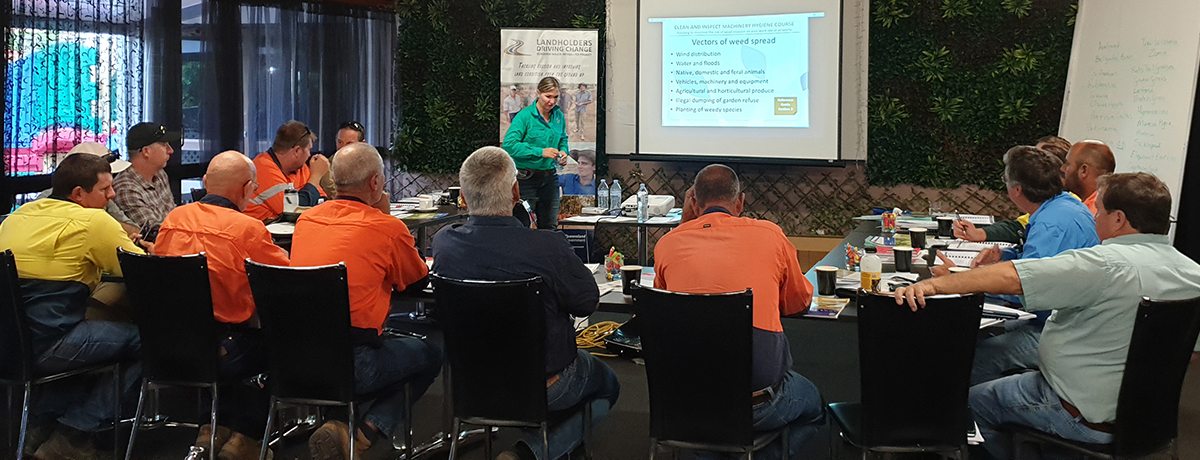TH9 Outdoor Services owner and director Belinda Callanan ran a weed hygiene training workshop for landholders in Collinsville in March.
Biosecurity regulations beefed-up
People going onto a farming operation where animals are kept must comply with the property’s biosecurity management plan when they enter or leave and while they are on the property.
The amended legislation allows police and biosecurity officers to immediately fine people who put on-farm biosecurity at risk.
Unauthorised entry to places where animals are kept can pose biosecurity risk including potential spread of diseases between humans and animals causing production losses which not only impact the business but affect supply and ultimately the consumer.
To support this new regulation, producers who keep animals are encouraged to take the following steps to protect their property:
-
Ensure they are a registered biosecurity entity with Biosecurity Queensland.
-
Have an up-to-date biosecurity management plan in place – for a checklist to update your biosecurity management plan or information on how to develop a plan is available at daf.qld.gov.au/biosecurityplan.
-
Have clear signage at the entry points to their property – a recommended downloadable sign is available from daf.qld.gov.au/biosecurityplan.
For further details on the regulation, how to protect your property and steps you can take in the event of an unauthorised entry, please visit the Department of Agriculture and Fisheries website or phone 13 25 23.
Second chance at weed hygiene training workshop
A huge response to LDC’s weed hygiene training workshop held earlier this year has prompted the LDC team to organise another one for landholders, earthworks contractors, and anyone else who is interested.
The workshop aims to:
- increase awareness of biosecurity and strategies on how to build capacity in the BBB catchment to effectively manage the spread of weeds;
- learn how to clean and inspect vehicles and machinery for plant materials;
- understand government legislation and requirements; and
- increase awareness of biosecurity threats and impacts on businesses.
The course will be funded by the LDC project for BBB landholders and land managers.
Contact a member of the LDC team member to reserve a place.
TH9 Outdoor Services, based at Nobby near Toowoomba, has extensive experience in the catchment conducting weed surveys and monitoring.
Good biosecurity doesn’t have to mean a lockdown
Landholders Driving Change, in partnership with the Whitsundays Regional Council, funded a small vehicle community washdown facility in Collinsville worth $10,000.
The commitment was a result of the LDC and Burdekin Dry Tropcis Regional Pest Management Group’s Pest Advisory Forum held in Collinsville in March 2018, where graziers raised concerns about biosecurity risks associated with outside bodies accessing grazing land.
They said laws for government agencies and utility companies accessing properties needed to be strengthened to safeguard landholders’ interests.
This is the first community washdown facility in the BBB region, and is part of LDC’s commitment of working with the whole community to achieve long-term economic, social and environmental benefits.
The LDC project has committed to coordinate further engagement between government, land managers and landholders on biosecurity issues. The LDC team hopes to bring stakeholders and landholders together to find mutual agreement and goodwill about how to better apply best management practice in relation to on-property biosecurity.

